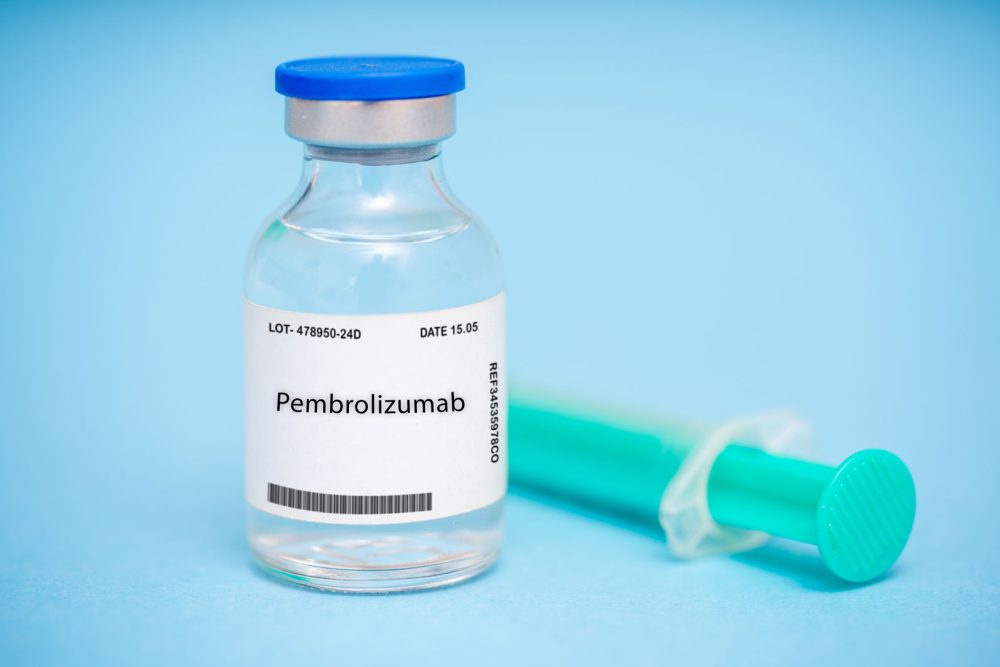Advertisment
Keytruda (pembrolizumab) met a primary endpoint of disease-free survival in certain patients with muscle-invasive urothelial carcinoma after surgery – Merck Inc

Merck Inc., known as MSD outside of the United States and Canada, announced that the Phase III AMBASSADOR (A031501) trial (KEYNOTE-123) evaluating Keytruda, Merck’s anti-PD-1 therapy, met one of its dual primary endpoints of disease-free survival (DFS) for the adjuvant treatment of patients with localized muscle-invasive urothelial carcinoma (MIUC) and locally advanced urothelial carcinoma versus observation.
At a pre-specified interim analysis review conducted by an independent Data Monitoring Committee, Keytruda demonstrated a statistically significant and clinically meaningful improvement in DFS versus observation in these patients after surgery. The trial will continue to evaluate its other dual primary endpoint of overall survival (OS). The safety profile of Keytruda in this trial was consistent with that observed in previously reported studies; no new safety signals were identified. Results will be presented at an upcoming medical meeting and discussed with regulatory authorities.
“Up to half of patients with bladder cancer who undergo surgery will experience recurrence within a year, underscoring the need for new treatment options in the adjuvant setting,” said Dr. Marjorie Green, senior vice president and head of late-stage oncology, global clinical development, Merck Research Laboratories. “These positive results highlight the potential of Keytruda to prevent recurrence after surgery for patients with localized muscle-invasive or locally advanced urothelial carcinoma.”
This trial was sponsored by the U.S. National Cancer Institute (NCI), part of the National Institutes of Health. Alliance for Clinical Trials in Oncology designed and led the trial with funding from the NCI and participation from all the National Clinical Trials Network Groups. Merck provided funding and support through a Cooperative Research and Development Agreement between Merck and NCI.
Merck has an extensive clinical development program evaluating Keytruda as monotherapy and in combination with other anti-cancer therapies across all stages of bladder cancer, including non-muscle-invasive, muscle-invasive and metastatic. Phase III studies in muscle-invasive bladder cancer include the KEYNOTE-866 trial, as well as the Phase III KEYNOTE-B15 and Phase III KEYNOTE-905 trials, which are being conducted in collaboration with Seagen and Astellas.
About A031501 AMBASSADOR/KEYNOTE-123 : AMBASSADOR (A031501, KEYNOTE-123) is a randomized, open-label Phase III trial (ClinicalTrials.gov, NCT03244384) evaluating Keytruda versus observation for the adjuvant treatment of patients with localized MIUC and locally advanced urothelial carcinoma. The dual primary endpoints are OS and DFS, and secondary endpoints include OS and DFS in PD-L1 positive and negative patients. The trial enrolled 702 patients who were randomized to receive Keytruda (200 mg intravenously every three weeks for up to 18 cycles) or undergo observation.





